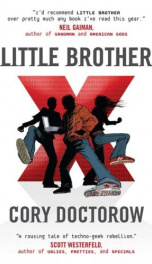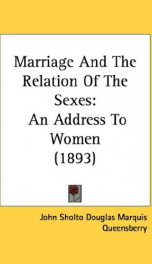Search and you will find - Career Times

Executive Corner
This is a fortnightly column featuring leaders in the executive search industry
Search and you will find
By Marc-Yannick Ceyton
One sure sign that the good times are returning to Hong Kong is that employees have rediscovered their customary itch to hop between jobs in the constant quest for something just that bit better. Their thoughts are now focused on higher salaries, faster promotions and better prospects, topics which have often taken second place to basic job security in recent years.
In fact, in a recent study by executive recruitment firm Robert Walters, it was found that a staggering 73 per cent of the local workforce would not think twice about changing jobs if they got a better offer. And at executive level, Hong Kong managers are now said to be 27 per cent less likely than their counterparts in the UK to give their current employers the chance to make a counter offer.
In such an environment, companies have been forced to fine-tune their recruitment and retention strategies, and firms which specialise in executive recruitment are seeing a surge in requests for assistance in filling key positions. "Employers can turn to us when they want to outsource their recruitment function," says Shane Sibraa, managing director of Robert Walters Hong Kong Limited. He adds that, with their international network, the company has access to a wide range of talented individuals across virtually the entire spectrum of industries. This enables them to locate and attract the most suitable candidate for each position.
73 per cent of the local workforce would not think twice about changing jobs
Three approaches
Using an executive recruitment firm offers distinct advantages for both employer and potential employee. Their extensive databases, effective advertising strategies and skilled professional consultants make it possible to identify the very best candidates.
"You should employ a combination of the three to be sure of choosing the best person for the job," explains Mr Sibraa. "We interview between 10 and 15 people and then narrow the field to about five applicants in order to compare them and finally present their credentials to the employer."
With 21 offices across five continents, Robert Walters uses meticulous methods to search for candidates who ideally match each job description so as to ensure the perfect fit. Consultants are trained to know exactly what to look for, unlike many human resources staff or line managers for whom recruitment is one of many activities and often outside their direct area of expertise.
Mr Sibraa explains that there are essentially three ways of finding the right person and that different techniques are used. The first relates to job seekers who have registered with the firm and are actively looking for a change. Relevant details are maintained on the database and these individuals begin a specific regime with an appointed consultant, which involves preparing an updated resume, practising interview techniques and clarifying objectives.
Available openings
In contrast, the passive job seeker may just look through the classified pages or browse job websites. Such people are usually in work, but interested in finding a more challenging role or a better salary. They are targeted by recruitment agencies with advertising campaigns which highlight a variety of openings within an advertisement, which is designed to illustrate the range of opportunities available.
The third method of finding potential recruits involves mapping the market, networking and actively approaching respected professionals who have not yet thought about a change of job.
This is often the tactic used when searching for elite candidates. A brief phone call and some general questions can usually give the consultant a feeling of what might persuade the person to consider a move.
Whatever the case, a period of negotiation will follow, during which the recruitment firm will assess the potential match and draw up a complete proposal which takes account of the needs of both employer and future employee. Terms and conditions can easily be compared with standard packages for the position, location and industry.
Mr Sibraa welcomes the recent changes which have allowed his firm to concentrate less on simply filling vacancies for clients and more on being consultants who help to define requirements and facilitate the overall hiring process.
"It is better for us to be involved right from the start," he says. "That gives us the chance to make full use of our expertise and do a more complete job for the client."
Factors to consider when using recruitment firms
Most importantly, the employer should be clear about their precise staffing needs and able to explain these to the recruitment agency. The required work experience, skill sets and personal characteristics should be clearly defined before the search begins.
The employer should build a solid relationship with the executive recruitment firm and make them part of the process from the outset. The consultant should be allowed to understand the company and the work environment in order to get a better idea of the kind of candidate who will fit in well. "We like to meet face to face with both employers and employees, and know them back to front in order to find the best match," says Mr Sibraa.
Appoint one recruitment firm per job. Otherwise confusion may result and relationships will falter.
Taken from Career Times 3 June 2005
Your comments are welcome at [email protected]
Info about the book
Author:
Series:
Unknown
ASIN:
B002OL2PLU
Rating:
5/5 (1)Your rating:
0/5
Languge:
English
Users who have this book
Users who want this book
What readers are saying
What do you think? Write your own comment on this book!
write a commentGenre
if you like Search and you will find - Career Times try:
Other books by this author
Do you want to read a book that interests you? It’s EASY!
Create an account and send a request for reading to other users on the Webpage of the book!










